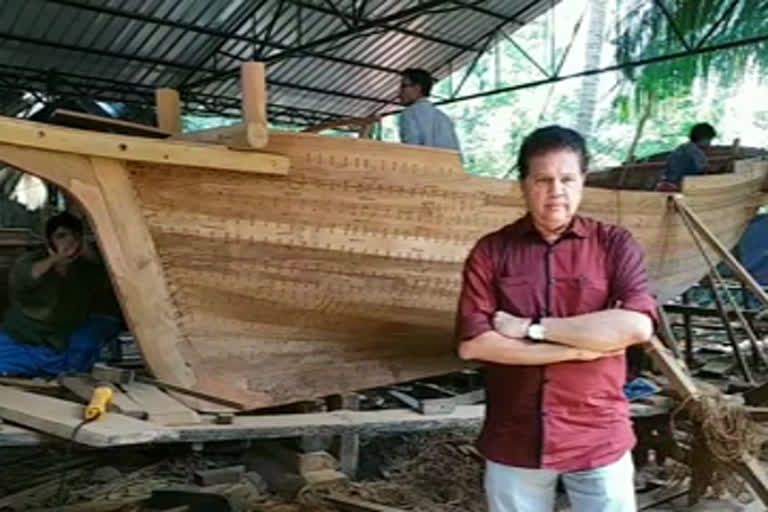Kozhikode: When the world starts rolling around a ball in Qatar next year, witnessing one of the biggest sporting events on the planet, a historical exhibit, a handicraft that was the umbilical cord connecting Kerala with international traders in its ancient history, would also attract the football lovers who come to Qatar. A 'Begala' wooden dhow from Chaliyam, Beypore, Kerala, which is a 700-year-old model, would be one of the exhibits at the Football World Cup in Qatar. The works for this unique dhow are nearing completion at its workplace in Chaliyam and then it would be shipped in a container to Qatar before the commencement of the World Cup.
This 'Begala' wooden dhow, popularly used in the trade about 700 years ago, is the product of master craftsmanship. The speciality of this dhow is that it does not have any iron nuts, nails or bolts to join it together. Coconut fibre and coconut fibre ropes are only used to stitch the wooden planks together. This 27-feet long, 7 feet- wide dhow has more than 5,000 holes and 2,500 fibre stitches through these holes and is being made completely using native teak wood.
The PI Ahammed Koya and Company, which has a history of more than 140 years of dhow making from Beypore are constructing this dhow. This company had supplied huge wooden dhows, many more than 150-feet in length, mostly to Arab millionaires who consider this as a prized possession. Locally known as 'Uru', these wooden dhows are arguably the biggest handicraft in the world and Beypore, a sleepy small town on the banks of the Arabian Sea is the most famous place for wooden dhow making.
Only a handful of craftsmen who are masters in dhow making are now left at Beypore. There only a couple of experts are left who knows how to use the coconut fibre stitching method to make the 'Begala' dhow.
